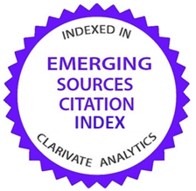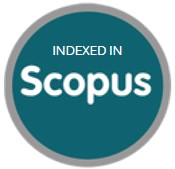Por una gobernanza global según la filosofía confuciana
DOI:
https://doi.org/10.21830/19006586.51Palabras clave:
Confucio, confucianismo, globalización, gobernanza, multilateralismoResumen
El tratamiento de los problemas globales se ha convertido en un asunto de controversia. Desde 1995, cuando apareció el informe de Naciones Unidas Our Global Neighborhood (Nuestra vecindad global), han surgido diferentes posiciones acerca de la naturaleza de la gobernanza global. Hay, al respecto, cuatro enfoques básicos: la gobernanza global no existe y no debe existir; ella no existe, pero debe existir; ella existe, pero no debe existir, y ella existe y debe existir. Aquí se plantea que la filosofía confuciana abriga la última opción, al reconocer el diagnóstico del dominio mundial de la racionalidad económica. Frente a ese desafío, la alternativa confuciana de gobernanza idealiza el voluntarismo de los líderes virtuosos, una solución impracticable, dada la importancia de las instituciones. Sin embargo, a partir de la filosofía confuciana revisada, este artículo argumenta que la estabilidad global guarda relación con la conjunción consciente del complejo social triádico, compuesto por las culturas cognitiva, transformativa y lúdica. Para este propósito, hace falta fortalecer las instituciones regionales y multilaterales, cuya función es mediar en la competencia por el poder mundial.
Descargas
Referencias bibliográficas
Ackerly, B. A. (2005, Aug.). Is Liberalism The Only Way Toward Democracy? Confucianism and Democracy, Political Theory 33(4), pp. 547-576.
https://doi.org/10.1177/0090591705276879
Aglietta, M. (2012, May-Jun.). The European Vortex, New Left Review 75, pp. 15-36.
Ames, R. T. & Hall, D. L. (2001). Focusing the Familiar: A Translation and Philosophical Interpretation of the Zhongyong. Honolulu: University of Hawai'i Press.
Apel, K.-O. (1991). Teoría de la verdad y ética del discurso (trad. Fernández Retenaga). Barcelona: Paidós.
Atfield, R. (2011). Ecological Issues of Justice, in H. Widdows y N. J. Smith (eds.), Global Social Justice. New York: Routledge.
Badiou, A. (2010). L'emblème démocratique, in Giorgio Agamben et al., Démocratie, dans quel état? Paris: La Fabrique.
Bary, W. T. & Wei-ming, T. (1998). Confucianism and Human Rights. New York: Columbia University Press.
Bary, W. T. (1998). Asian Values and Human Rights: A Confucian Communitarian Perspective. Cambridge, Mass: Harvard University Press.
Bell, D. A. (2006). Beyond Liberal Democracy: Political Thinking for an East Asian Context. Princeton, NJ: Princeton University Press.
https://doi.org/10.1515/9781400827466
Commission on Global Governance (1995). Our Global Neighborhood: The Report of the Commission on Global Governance. New York: Oxford University Press.
Commission on Global Governance (1995). Our Global Neighborhood: The Report of the Commission on Global Governance. Oxford: Oxford University Press.
De Gregori, W. (2011). Manifiesto de la proporcionalidad democracia directa Raleigh, NC.: Lulu Enterprises.
PMid:22193538 PMCid:PMC3276770
Dierckxsens, W. (1981). Política y población. Costa Rica: Universitaria Centroamericana.
Friedman, T. L. (2005). The World Is Flat: A Brief History of the Twenty-First Century. New York: Farrar, Straus and Giroux.
Fukuyama, F. (1989, Summer). The End of History? The National Interest, pp. 3-18.
Habermas, J. (1991). Theory of Communicative Action. (trans. by Thomas McCarthy). Cambridge: Polity Press.
Habermas, J. (2006). Time of Transitions. Cambridge: Polity.
PMid:16581588
Hall, D. L. & Ames, R. T. (1987). Thinking Through Confucius. Albany: State University of New York Press.
Hu, W. (2007). On Confucian Communitarianism, Frontiers of Philosophy in China 2(4), pp. 475-487.
https://doi.org/10.1007/s11466-007-0030-2
Huang, Ch. (2010). Humanism in East Asian Confucian Context. Bielefeld: Transcript.
https://doi.org/10.14361/transcript.9783839415542
Jonas, H. (1984). The Imperative of Responsability: In Search of an Ethics for the Technological Age. Chicago: University of Chicago Press.
Legge, J. (trans.) (2008). The Analects of Confucius: With a Selection of the Sayings of Mencius, The Way and its Power of Laozi. East Bridgewater, MA: Signature Press.
Linklater, A. (1990). Men and Cittizen in the Theory of International Relations. London: Macmillan.
https://doi.org/10.1007/978-1-349-20867-8
Low, L. (2006, Dec.). Book Review: East Asian Welfare Regimes in Transition: From Confucianism to Globalisation, ASEAN Economic Bulletin 23(3), pp. 392-395.
https://doi.org/10.1355/AE23-3H
Lyotard, J.-F. (1984). The Postmodern Condition: A Report on Knowledge (trans. by Geoff Bennington and Brian Massumi). Minneapolis: University of Minnesota Press.
Lyotard, J.-F. (1991). La condición postmoderna. Informe sobre el saber (trad. esp. de Mariano Antolín Rato). Madrid: Cátedra, 1991.
Lyotard, J.-F. (1993). Libidinal Economy (trans. by Lain Hamilton Grant). London: Athlone Press.
MacIntyre, A. C. (1999). Dependent Rational Animals: Why Human Beings Need the Virtues. Chicago: Open Court.
Mahbubani, K. (2009). The New Asian Hemisphere: The Irresistible Shift of Global Power to the East. New York: PublicAffairs.
PMid:19583060
Mencius (2009). Mencius, trans. by Irene T. Bloom, Philip J. Ivanhoe, ed. New York: Columbia University Press.
Morant, G. S. (1965). Confucio. Su vida y su obra, Buenos Aires: Editorial Schapire.
Nozick, R. (1974). Anarchy, State and Utopia. Oxford: Basic Books, p. 333.
O'Dwyer, Sh. (2001). Democracy and Confucian Values, Philosophy East and West 53(1), pp. 39-63.
https://doi.org/10.1353/pew.2003.0007
Piketty, T. (2014). Capital In The Twenty-first Century. (trans. by Arthur Goldhammer). Cambridge, MA: The Belknap Press of Harvard University Press, pp. 326-327.
https://doi.org/10.4159/9780674369542
Piketty, Th. (2014). Capital In The Twenty-first Century; trans. by Arthur Goldhammer. Cambridge, MA: The Belknap Press of Harvard University Press. [Trad. espa-ola del original en francés por Eliane Cazenave, El capital en el siglo XXI, México: FCE, 2014].
https://doi.org/10.4159/9780674369542
Rancière, J. (2006). Hatred of Democracy (trans. by Steve Corcoran). London: Verso.
Rawls, J. (1999). The Law of Peoples: With "the Idea of Public Reason Revisited". Cambridge, Mass: Harvard University Press.
Rawls, J. (2002). The Law of Peoples: With "The Idea of Public Reason Revisited." Cambridge, Massachusetts / London, England: Harvard University Press.
Rosenau, J. N. (1990). Turbulence in World Politics: A Theory of Change and Continuity. Princeton, NJ: Princeton University Press.
Russell, A. F. (1997). Confucian and Communitarian Responses to Liberal Democracy. The Review of Politics 59(3), pp. 561-592.
https://doi.org/10.1017/S0034670500027728
Sandel, M. J. (2010). Justice: What's the Right Thing To Do? New York: Farrar, Straus and Giroux.
Saxer, M. (2009, Apr.). The Comeback of Global Governance. Ways Out of the Crisis of Multilateral Structures, FES Dialogue on Globalization Briefing Paper 4. Berlin: Friedrich Ebert Stiftung, pp. 1-11.
Singer, A. (2013, Summer). Giving Practices in Islamic Societies, Social Research: An International Quarterly 80(2), pp. 341-358.
Stiglitz, J. (2000). Globalization and Its Discontents. New York: St Martin's Press.
Tamney, J. B., & Chiang, L. H.-L. (2002). Modernization, Globalization, and Confucianism in Chinese Societies. Westport, Conn: Praeger.
Toulmin, S. (1992). Cosmopolis: The Hidden Agenda of Modernity. Chicago: University of Chicago Press.
Tugendhat, E. (1998). Ser, verdad, acción. Ensayos filosóficos. Barcelona: Gedisa.
United Nations Economic and Social Council (2013). World Economic and Social Survey 2013: Sustainable Development Challenges. Geneva: United Nations.
Vattimo, G., Taylor, Ch. & Rorty, R. (2007, Spring). A Roundtable on Globalization, Journal for Cultural and Religious Theory 8(2).
Wang, Y. (2008). Confucian Ethics and Emotions, Frontiers of Philosophy in China 3(3), pp. 352-365.
https://doi.org/10.1007/s11466-008-0023-9
Widdows, H. & Smith, N., eds. (2011). Global Social Justice. New York: Routledge.
Xuetong, Y. (2013, Feb. 25). New Values for New International Norms. Beijing: China Institute of International Studies, available at http://www.ciis.org.cn/english/2013-02/25/content_5755168.htm
Yol, J. H. (1993). Confucianism as Political Philosophy: A Postmodern Perspective. Human Studies, 16(1-2), pp. 213-230.
https://doi.org/10.1007/BF01318581
Young, I. M. (2006). Responsability and Global Justice: A Social Connection Model, in E. F. Paul, F. D. Miller, Jr., and J. Paul (eds.), Justice and Global Politics. Cambridge: Cambridge University Press.
Descargas
Publicado
Cómo citar
Número
Sección

| Estadísticas de artículo | |
|---|---|
| Vistas de resúmenes | |
| Vistas de PDF | |
| Descargas de PDF | |
| Vistas de HTML | |
| Otras vistas | |
























